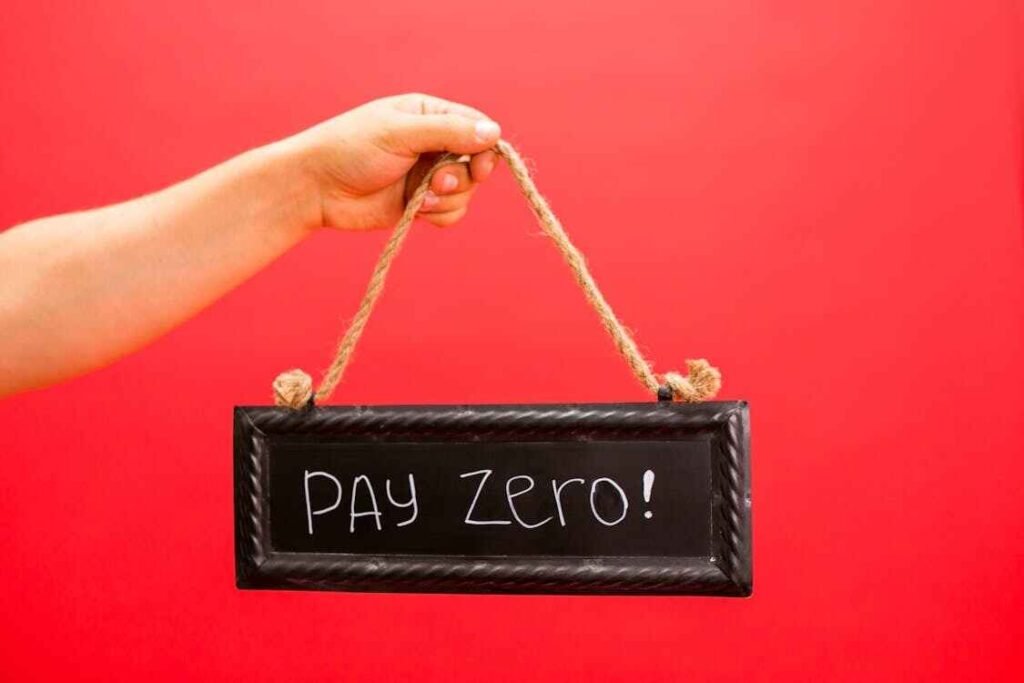Changing spending habits—or breaking bad money habits—is one of the most powerful steps you can take to improve your financial future. When you learn to handle money better, cut out unnecessary costs, and think about what you buy every day, you may live more freely, with less stress, and with more purpose.
Making small changes to how you handle money, budgeting better, and being more aware of what you buy may really change your whole life, from your bank account to your mind.

Table of Contents
The Changing spending habits can transform your budget:
1. Discover your “why”
Understanding the curbing of your spending starts with identifying the real reason behind your financial choices. When you define your “why,” you can stay motivated to make smart purchases and stick to your decision even when it’s tough.
Take time to reflect on past overspending and how it negatively affected your life — think of those unexpected credit, card, bills, and the financial stress that came with spending more than you intended.
Consider the advantages of reining in your money to achieve larger financial goals like homeownership, retirement, savings, and maintaining the quality of life you want. Envision your financial wellness if you successfully curb your spending and hold on to that image when you feel tempted to splurge.
2. Review your spending habits
Identifying your unique spending patterns is essential for breaking the cycle of unnecessary spending. To gain insight, examine your bank and credit card statements carefully and highlight discretionary habits such as purchases you regret or impulse buys you barely remember.
Look for repeating patterns. You might overspend while shopping with loved ones or when online during times you feel bored, frustrated, or anxious. Avoid judgment and simply make a mental note of these patterns so you can recognize them when they’re happening.
3. Redirect your behavior
Once you understand your spending patterns, it’s time to brainstorm ways to disrupt the cycle. Build a strategy around your triggers to reduce spending without sacrificing happiness.
If you overspend while shopping with loved ones, allow a splurge but set a limit that won’t interfere with your financial goals. For impulse purchases in a store, use a list or shop online and pick up purchases in the store to ensure you only purchase what you need.
If spending is driven by emotions like boredom or fear, find quick emotional needs that don’t involve spending, such as a walk around the block or calling a loved one for a chat to avoid a purchase.
4. Build a budget
Budgeting helps you stay conscious of how you spend your money and ensures you allocate it toward your financial goals. Create a budget that covers expenses, savings goals, retirement, emergencies, and larger purchases like buying a home or a car.
Your budget should include an allowance to spend as you wish, setting a dollar limit that gives you freedom to treat yourself while not sacrificing your goals or harming your ability to cover expenses.
5. Pay with debit or cash
Using credit cards can be a great financial tool, but they can also lead to overspend if not managed wisely. Switching to paying with debit or cash, even temporarily, can reshape your habits.
Making purchases with money in hand helps rein in spending and keeps your account balance visible in real time. Credit cards delay the impact of spending until the credit card statement arrives, increasing the risk of accidentally spend more than intended, leading to overspending and damaging your credit score.
If you prefer credit card use, consider transferring money from your bank account to the credit card after each purchase to avoid overspending.
6. Make the most of your mobile banking app
Monitoring and reducing spending is easier with your mobile banking app, your best friend in this journey. Set up auto-save to automatically transfer money into savings accounts at regular intervals, aligning with your financial goals.
Many mobile app budgeting function features let you set limits on discretionary spending and receive alerts when you’re reaching that limit. Even without such a function, your mobile app allows you to review your account balance anytime, anywhere, so you can review your finances before deciding on a purchase.
7. Try a no-buy
A clean break from overspending through a no-buy challenge can work wonders. By going cold turkey, you temporarily eliminate discretionary spending for a set period, such as a week or month.
With splurges off the table, you create an opportunity for redirecting behavior and forming positive financial habits to reduce spending over the long term. Set rules for your shorter week no-buy to eliminate discretionary purchases entirely, or longer ones where you relax rules to replace essential items, making it realistic.
Focus on areas like spending on cosmetics, gaming, or clothing, and target that category to control spending. This may feel challenging, but it’s rewarding as strategies help in forming positive financial habits, making your money work harder to achieve financial goals.
What Happens When You Change Spending Habits (and Break Bad Money Habits)
Let’s explore how adjusting your spending habits can reshape your financial life from the ground up.
1. Savings Grow Consistently (and Build Your Safety Net)
The quickest way to eventually increase your savings is to change your spending patterns.
The majority of people believe they don’t make enough money to save, but in reality, their spending habits are frequently the thing preventing them from saving.
Here’s how minor adjustments add up to significant outcomes:
- Cutting one $5 coffee daily → saves $150/month, or $1,800/year.
- Unused subscriptions can be cancelled to save $40 a month.
- Meal prepping instead of takeout twice a week → adds another $100/month.
That’s nearly $3,000 in a year without a pay raise.
Pro Tip: To monitor your progress and see your savings account balance increase, use an app like Mint, YNAB, or PocketGuard.
Takeaway: Saving isn’t about deprivation. You can create an emergency fund that gives you peace of mind and gets you ready for more ambitious objectives like investing or debt repayment by kicking bad money habits and putting needs before wants.
2. Start Investing
By changing your buying habits, you can eliminate the unnecessary expense.
As a result, you can free up more money for investments.
Through a variety of strategies, including stock markets, mutual funds, and retirement plans, investing enables your money to grow over time.
These days, saving money isn’t enough; you also need to concentrate on building real wealth for the future. As your financial base strengthens, you’ll find managing debt easier and less stressful.
3. Manage Debt Confidently
You can get more control over your financial condition by changing the way you spend your money. You may finally start paying off your debt with peace of mind. You don’t put off or feel nervous about paying your payments.
Rather, you determine how you will settle your bills. Making prudent spending decisions can help you take control of your money and accelerate the repayment of your debts. Once debts are under control, you can focus on investing in yourself.

When you change how you spend your money, you start to put it towards things that really matter, like your future and your personal growth. You can now get a degree, certification, or just take online classes instead of wasting money on things you don’t need.
Investing in your education and developing your skills can help you make more money, get a better job, and feel better about yourself. And with a stronger earning potential, those big dreams you’ve been holding onto feel more within reach.
5. Big Goals Become Possible
Changing your spending patterns could help you reach your greatest goals. Making wise financial decisions will help you achieve your financial goals, whether they be to raise a family, start a business, travel, or purchase a home. Y
You’ll notice a change when you reduce wasteful spending and set aside funds for a certain objective. Slowly, you are able to overcome what was insurmountable. And when your essentials and big goals are covered, you can finally enjoy saying yes without guilt.

6. Say “Yes” Guilt-Free.
If you change how you spend your money, you won’t feel bad about indulging yourself. Why? Everything is prepared for it. You did it! You set a budget, took care of your money, and made time for fun. You don’t have to say “yes” to a short trip, a night out, or a little indulgence. Instead of continuously saying no, try to find new ways to say yes. With your personal needs met, you can also focus on taking care of your health and well-being.

7. Prioritize Health & Wellness
If you spend less money, you can invest in your health. You could choose to see a therapist to help your mental health, fill your kitchen with fresh, healthy foods, or join a gym or sport to stay active.
You could even take wellness or meditation classes to help you relax and get more energy.
All of these options will help you enjoy the life you’ve worked so hard to build by making your body and mind stronger
Final Thoughts: Small Shifts Matter
Changing spending habits isn’t just about saving a few dollars here and there. The right mindset and small, consistent shifts are the best way to stop overspending habits and build financial freedom. It’s about rewiring how you think about money—choosing patience over impulse and planning for the future instead of living for the moment.
You don’t need to make big sacrifices all at once to change how you spend money. In fact, small, regular changes are what create the biggest financial improvements over time. As Warren Buffett says, “Save first, then spend what’s left.”
Fresh money guides you’ll love
Slash months off your auto loan with smart payment hacks.
Read nowYes, it’s possible: rent and still build your home fund.
Read nowStart early, save smart, and unlock your first place.
Read nowTurn the dream trip into a reality with fun saving tricks.
Read now

5 thoughts on “Why Changing Spending Habits Changes Everything”